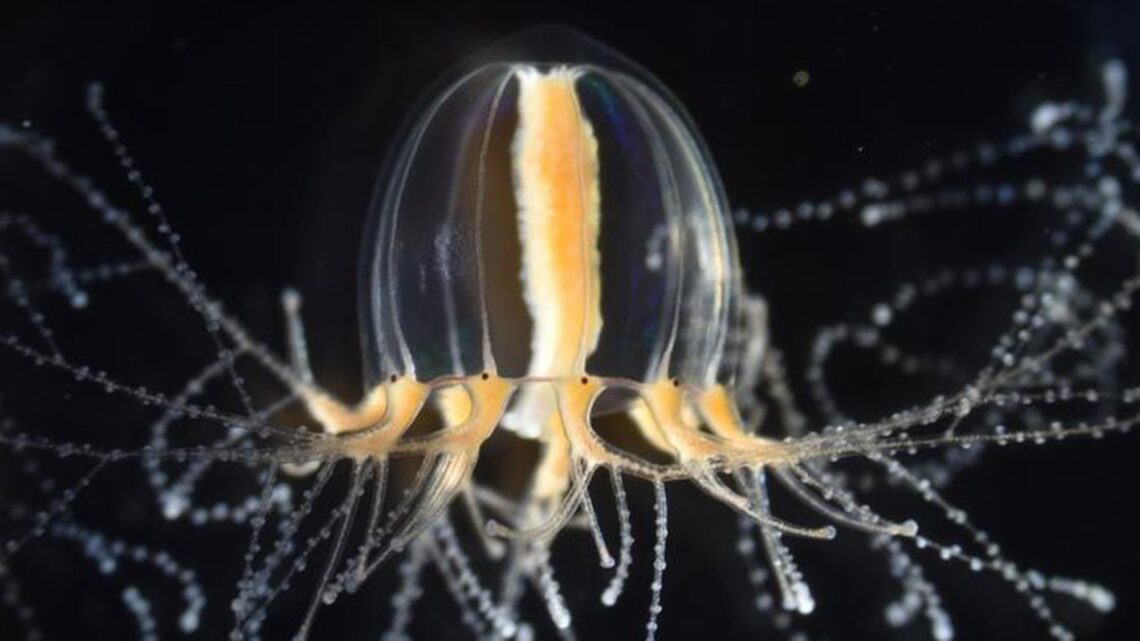An unusual jellyfish species found in the eastern Pacific Ocean called Cladonema pacificum is only about the size of a pinkie nail, but it can regenerate an amputated tentacle in just two or three days. Jellyfish need their tentacles to hunt and feed, so keeping them intact is crucial to their survival. How jellyfish form the parts necessary to regrow appendages has been a mystery. Now, a team based in Japan is beginning to understand the cellular processes that these tiny jellyfish use in limb regeneration. The findings are described in a study published December 21 in the journal PLOS Biology.
[Related: Even without brains, jellyfish learn from their mistakes.]
Finding the blastema
Salamanders and insects like beetles form a clump of undifferentiated cells that have not developed into specific cell types yet. These undifferentiated cells can grow into a blastema, which is critical for repairing damage and regrowing appendages.
To look for signs of the crucial blastema in jellyfish, the authors of this study amputated a tentacle from a Cladonema pacificum jellyfish in the lab. They then studied the cells that were growing in the jellyfish post-amputation. The team found that jellyfish have stem-like proliferative cells actively growing and dividing, but are not yet changing into specific cell types. These cells appear at the site of injury and help from the blastema.
“Importantly, these stem-like proliferative cells in blastema are different from the resident stem cells localized in the tentacle,” study co-author and University of Tokyo cell biologist Yuichiro Nakajima said in a statement. “Repair-specific proliferative cells mainly contribute to the epithelium—the thin outer layer—of the newly formed tentacle.”
These resident stem-like cells near…
Read the full article here

